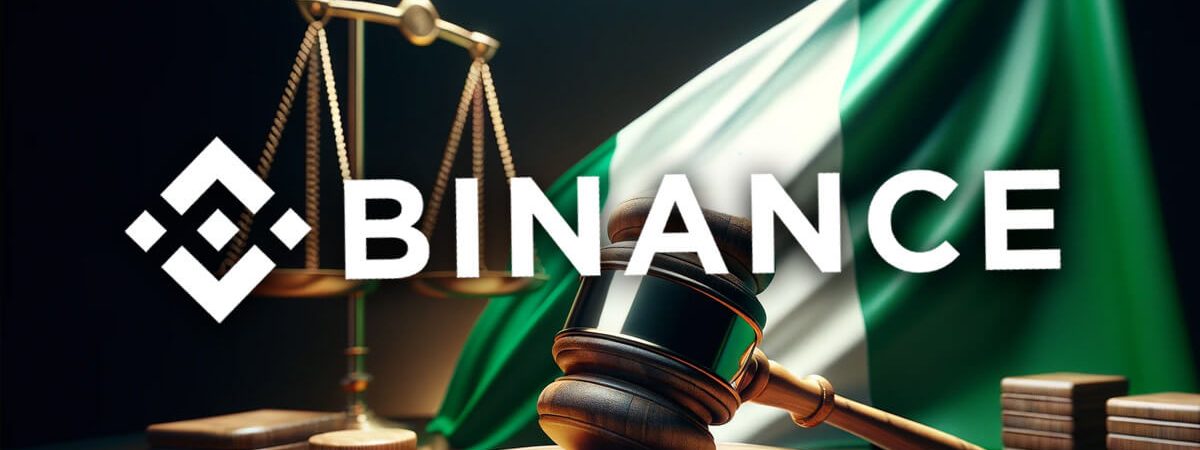
On the first of March 2024, Binance’s CEO Richard Teng, wrote a public letter entitled “My First 100 Days Leading Binance”. While he covered the growth in user base reaching 178 million registered users, and the $3 billion in net inflows between November 2023 and February 2024, he didn’t cover the regulatory woos still facing Binance, and for that reason what he didn’t write is seemingly as important and what he did write.
In his letter he states, “Indeed, our user-focused DNA continues to be the driving force behind people’s trust in Binance and the corresponding growth of our user base, with more than 178 million registered users as of today. Moreover, since our resolutions with US regulators, we continue to demonstrate a very strong financial performance. As reported by Bloomberg based on the data from DeFi lama, we recorded net inflows of more than $3 billion between late November and late February, outpacing what our biggest competitors took in over the same period.”
When he did speak about regulation he acknowledged once again that regulation is an indispensable part of the lifecycle of all innovative sectors. He also noted that robust regulatory frameworks must be built on basic principles of maximizing protection for users while fostering a safe and sustainable ecosystem that can grow responsibly.
In his one note with regards to licensing, he states that over the past three months, (100 days) Binance has made “significant headway” in negotiating licenses and authorizations.
The only result he had to put on the table was Gulf Binance, an exchange and brokerage platform in Thailand, a joint venture between Binance and Gulf Innova. Gulf Binance successfully launched its full operations, extending access to digital assets to potentially millions of Thai crypto users and crypto-curious.
What was not said in the 100-days letter is as important as what was said. For example, Richard Teng didn’t speak about any of the licenses that were currently underway, or of the issues still plaguing Binance in other jurisdictions.
When it comes to MENA region, while Binance holds a license in Bahrain, to date it has not been able to receive its full VASP license from Dubai’s virtual asset regulatory authority. This stall comes as more and more crypto brokers and exchanges are receiving licenses in the UAE, one of which is M2 in Abu Dhabi and several others in Dubai including CoinMENA, and OKX.
OKX which has grown its market share over the past year, also just received an in-principle approval for a Major Payment Institution license from the Monetary Authority of Singapore (MAS), and officially launched its Turkish exchange in February. OKX has rapidly expanded globally, launching localized platforms in markets like Brazil.
While Binance for example was absent from applying for a license in Hong Kong. 24 companies vied for licenses to operate digital-asset exchanges ahead of the looming May deadline. Hong Kong attracted players such as Bybit, OKX, and Crypto.com. Since then, Hong Kong’s markets regulator has recently warned the public about the crypto exchange ByBit and several of the products it offers to investors.
The latest TokenInsight report reveals that 2023 witnessed shifts in market share and trading volume among top exchanges, with Binance’s numbers decreasing from 54.2% to 48.7% while OKX’s and Bybit’s increasing by 4.3% and 2.2%, respectively. While Binance still holds number one position in terms of market share according to CoinMarketCap, Bybit now holds number three and OKX fourth.

Teng also doesn’t mention the ongoing battle in Nigeria. Most recently, Nigerian authorities are urging Binance to provide details about its most prominent 100 users within the nation amidst a continued clampdown on the platform. The request is a focal point in discussions between Binance and Nigeria, with the government perceiving the exchange as a key obstacle hindering its attempts to strengthen the national currency, the naira.
In response to the crypto exchange’s attempts to engage in dialogue with Nigerian authorities, two senior executives, Tigran Gambaryan and Nadeem Anjarwalla, were reportedly detained by local prosecutors. Notably, the executives remain in custody despite Binance’s decision to delist all naira transactions and halt peer-to-peer naira transactions in late February.
Then there is Binance U.S., where the SEC alleged Binance.US was not abiding by the terms of a consent order in its case against the U.S.-based crypto exchange and its global parent. As per the SEC the company did not prove to the SEC’s satisfaction that Binance global employees did not have access to U.S. customers’ assets.
Consequently, the 100-day letter shows that Richard Tengis is nothing like his predecessor CZ. Teng would rather stay quiet to the hurdles facing the company within the last 100 days, obstacles that most likely will have an effect on license applications in countries such as the UAE.
As he talks of success and how it should not be taken for granted, and of his plans to welcome in institutional investors offering them the range and quality of services that would make them as he says, “stick around for the long haul”, one cannot but wonder if the 200-day letter will be written.











